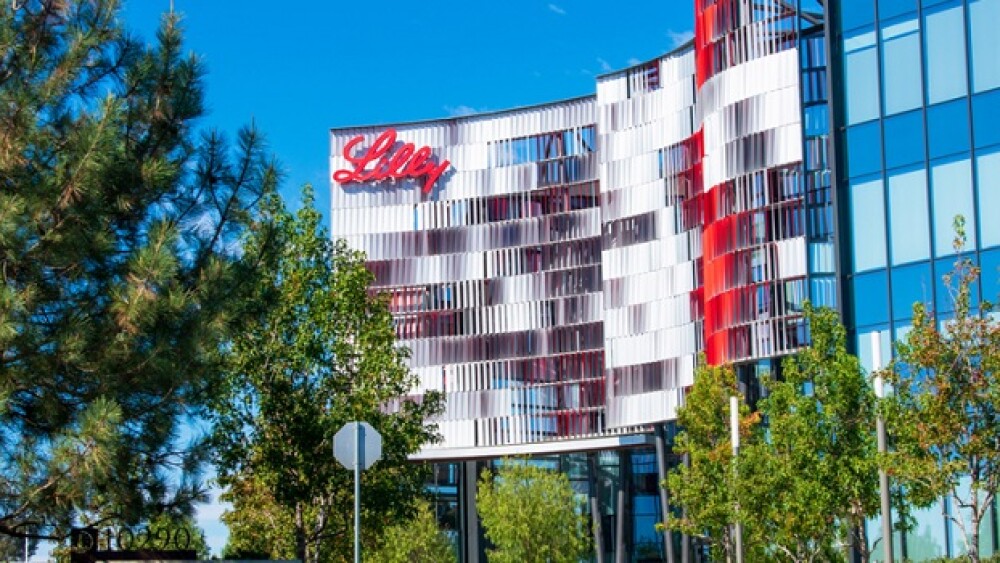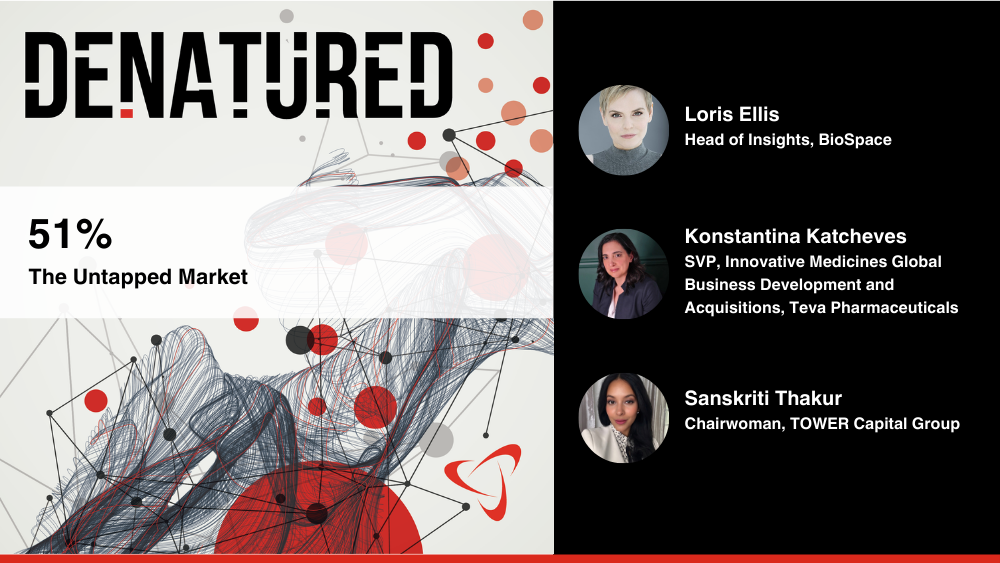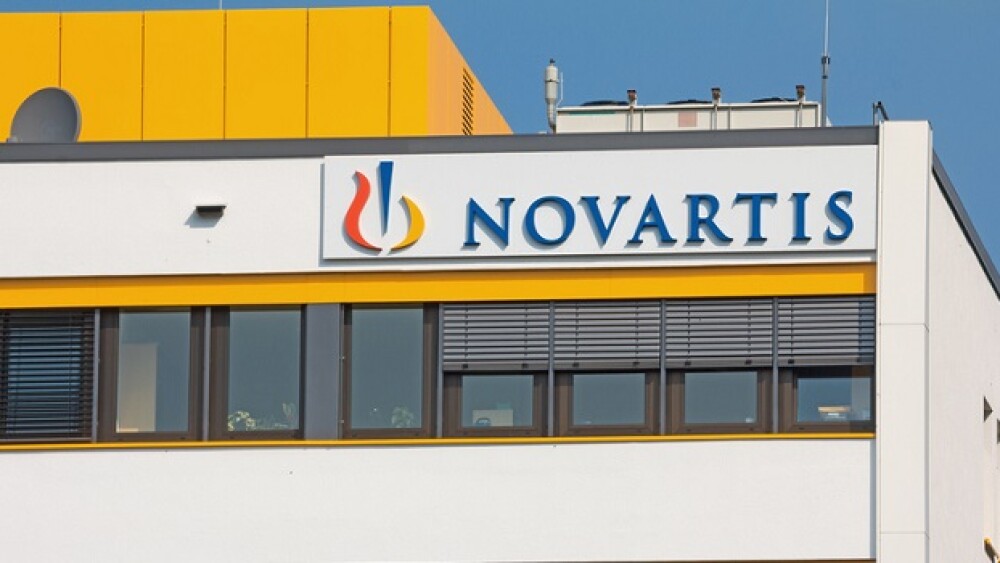Asklepios BioPharmaceutical, Inc. (AskBio), a clinical-stage adeno-associated virus (AAV) gene therapy company and wholly owned subsidiary of Bayer AG, today announced that the clinical team from Brain Neurotherapy Bio, Inc., a gene therapy company based in Columbus, Ohio, has joined AskBio to expand its clinical pipeline for the treatment of neurodegenerative disorders.
RESEARCH TRIANGLE PARK, N.C., Jan. 28, 2021 (GLOBE NEWSWIRE) -- Asklepios BioPharmaceutical, Inc. (AskBio), a clinical-stage adeno-associated virus (AAV) gene therapy company and wholly owned subsidiary of Bayer AG, today announced that the clinical team from Brain Neurotherapy Bio, Inc., a gene therapy company based in Columbus, Ohio, has joined AskBio to expand its clinical pipeline for the treatment of neurodegenerative disorders. Brain Neurotherapy Bio (BNB) was established in 2018 by Krystof Bankiewicz, MD, PhD, in association with AskBio founders Sheila Mikhail, JD, and Jude Samulski, PhD. Dr. Bankiewicz will lead AskBio’s development efforts in Parkinson’s disease and multiple system atrophy (MSA).
“I’m pleased to welcome the Brain Neurotherapy Bio team to AskBio,” said Sheila Mikhail, AskBio CEO. “They bring two active clinical programs, proprietary delivery technologies and unique clinical expertise in CNS indications, including the clinical translation and development of neurotrophic factor gene therapy for the treatment of neurological conditions.”
Dr. Bankiewicz commented, “We are grateful for the collaboration we’ve had with AskBio and are honored to jointly accelerate clinical development of our gene therapy programs that we hope will benefit patients and families living with Parkinson’s disease, multiple system atrophy and other neurological conditions.”
AskBio’s President, Therapeutics, Kathy High, MD, added, “We look forward to advancing this innovative technology as part of our strategy to broaden gene therapy beyond diseases caused by a single gene to complex pathway disorders.”
The lead clinical program, glial cell-derived neurotrophic factor (GDNF) gene therapy for Parkinson’s disease, is currently recruiting and treating patients in a Phase 1b clinical study in the U.S. to evaluate safety and preliminary efficacy. The trial has treated seven out of 12 patients expected to be included in the study. A Phase 1/2 study for eligible patients with MSA is expected to begin enrollment and treatment in early 2021.
The first Parkinson’s patient in the Phase 1b study (NCT04167540) was treated in August 2020. Patients are being enrolled at The Ohio State University Wexner Medical Center, University of California San Francisco and University of California Irvine Medical Centers to evaluate GDNF gene therapy in participants with early to moderate stages of Parkinson’s disease. This clinical safety study is supported by the California Institute for Regenerative Medicine. The one-time treatment involves infusion of a gene therapy solution into deep structures of the brain that are affected by Parkinson’s.
The clinical program for MSA has an active IND and is preparing to enroll patients in a study (NCT04680065) to evaluate the safety and potential clinical effect of AAV2-GDNF delivered to the putamen in patients with a diagnosis of MSA with predominant parkinsonism symptoms. The randomized, controlled study intends to enroll nine patients in the U.S. through The Ohio State University Medical Center, University of California Irvine and University of California San Diego.
By enhancing levels of a naturally occurring growth factor, GDNF gene therapy is intended to promote the survival and functioning of vulnerable brain cells that degenerate in Parkinson’s disease and MSA. Harnessing the brain’s own cellular machinery, GDNF gene therapy provides continuous production of GDNF that may provide an advantage over intermittent protein infusions of synthetic GDNF where levels may be subtherapeutic between infusions.
Both programs utilize an AAV vector platform that has generated safe and effective gene therapies for other diseases. The product candidate for Parkinson’s disease and MSA will deliver the GDNF gene therapy investigational agent via a novel, image-guided neurosurgical delivery technology in an effort to optimize the precision, safety and efficiency of gene transfer within the brain. With lessons learned from over three decades of neurotrophic factor development, the protocol uses intraoperative magnetic resonance imaging (iMRI) technologies to precisely target the therapy to a collection of nerve cells in a brain region called the putamen.
About Krystof Bankiewicz, MD, PhD
Dr. Bankiewicz is a world-renowned expert in neuro-restorative medicine with successful translation of multiple gene therapies into the clinic. His experience includes 20 years’ tenure as Professor of Neurological Surgery at University of California, San Francisco. He is currently the Gilbert and Kathryn Mitchell Endowed Chair and Director of the Brain Health and Performance Center at The Ohio State University and Kinetics Foundation Chair in Translational Research and Professor in Residence of Neurological Surgery and Neurology at the University of California, San Francisco. Dr. Bankiewicz has both industry and academic experience, is an inventor on numerous patents, and has published nearly 250 peer-reviewed research articles and co-founded three companies.
About GDNF gene therapy
The GDNF gene therapy candidate under evaluation consists of a delivery vector, made up of the outer shell structure of the non-infectious adeno-associated virus serotype 2 (AAV2), that allows attachment to specific types of brain cells and transfer of its genetic payload. The viral vector with the DNA payload, AAV2-GDNF, targets brain nerve cells within specific regions, inducing them to produce and locally release GDNF protein. The GDNF gene payload consists of a human GDNF DNA sequence that is attached to additional regulatory sequences that provide long-term stability of the transferred DNA and continuous production of GDNF protein by the recipient nerve cell. Direct brain delivery of the AAV2-GDNF investigational therapeutic agent is performed with intraoperative MRI guidance using customized neurosurgical methods and technologies. Real-time MRI during surgery allows for monitoring the distribution of AAV2-GDNF, allowing the investigational therapeutic agent to be tailored to each individual patient for optimal administration to precise brain regions.
About Parkinson’s disease
Affecting more than 10 million individuals worldwide and one million in the U.S., Parkinson’s disease is the most common neurodegenerative movement disorder in the world. In the U.S., there are approximately 60,000 new Parkinson’s disease diagnoses per year. As many as 90% of Parkinson’s disease cases have no known specific cause, while the remainder show genetic inheritance. The vast majority of patients are diagnosed between the ages 60 and 70, and incidence increases with age. The cardinal features of the disease include resting tremor, rigidity, slowness of movement and postural instability. There are a variety of clinical features that also commonly occur prior to those, including but not limited to sleep disturbances, constipation and behavioral abnormalities. The underlying pathology is characterized by the degeneration of dopamine-producing neurons connecting the substantia nigra to a coordinating center for movement called the putamen, with accumulation of α-synuclein protein aggregates as Lewy bodies within the substantia nigra leading to neuronal degeneration and key clinical manifestations.
About multiple system atrophy
Multiple system atrophy (MSA) is rare neurodegenerative disorder afflicting up to 50,000 individuals in the U.S. and a similar number in the EU. New cases of MSA in the U.S. and EU number nearly 4,500 per year, and MSA affects men and women equally. No specific genetic defect or other cause has been discovered leading to this disorder, but the cause is likely a combination of genetic tendencies and environmental factors. Clinical features of the disease typically appear between 55 and 60 years of age. Typical signs of the disease include blood pressure variability, urinary incontinence, parkinsonism, poor balance, incoordination of arms and legs and spasticity. Two major subtypes of MSA display prominence of parkinsonian (MSA-P) or cerebellar (MSA-C) signs, with the former making up 60% of all afflicted individuals. Like Parkinson’s disease, MSA features accumulation of α-synuclein protein, but rather than neurons, the accumulation occurs in oligodendroglial cells that surround the neurons. GDNF and dopamine levels in the brain of individuals with MSA are markedly reduced in the putamen, a region also affected in Parkinson’s disease. MSA is a rapidly progressive condition, with 60% of those afflicted progressing from diagnosis to death within six to 10 years.
About AskBio
Asklepios BioPharmaceutical, Inc. (AskBio), a wholly owned and independently operated subsidiary of Bayer AG acquired in 2020, is a fully integrated AAV gene therapy company dedicated to developing life-saving medicines that cure genetic diseases. The company maintains a portfolio of clinical programs across a range of neuromuscular, central nervous system, cardiovascular and metabolic disease indications with a clinical-stage pipeline that includes therapeutics for Pompe disease, Parkinson’s disease and congestive heart failure, as well as out-licensed clinical indications for hemophilia and Duchenne muscular dystrophy. AskBio’s gene therapy platform includes Pro10™, an industry-leading proprietary cell line manufacturing process, and an extensive AAV capsid and promoter library. With global headquarters in Research Triangle Park, North Carolina, and European headquarters in Edinburgh, UK, the company has generated hundreds of proprietary third-generation AAV capsids and promoters, several of which have entered clinical testing. Founded in 2001 and an early innovator in the gene therapy field, the company holds more than 500 patents in areas such as AAV production and chimeric and self-complementary capsids. Learn more at www.askbio.com or follow us on LinkedIn.
About Bayer
Bayer is a global enterprise with core competencies in the life science fields of health care and nutrition. Its products and services are designed to benefit people by supporting efforts to overcome the major challenges presented by a growing and aging global population. At the same time, the Group aims to increase its earning power and create value through innovation and growth. Bayer is committed to the principles of sustainable development, and the Bayer brand stands for trust, reliability and quality throughout the world. In fiscal 2019, the Group employed around 104,000 people and had sales of 43.5 billion euros. Capital expenditures amounted to 2.9 billion euros, R&D expenses to 5.3 billion euros. For more information, visit www.bayer.com.
Forward-looking statements
This press release contains “forward-looking statements.” Any statements contained in this press release that are not statements of historical fact may be deemed to be forward-looking statements. Words such as “believes,” “anticipates,” “plans,” “expects,” “will,” “intends,” “potential,” “possible” and similar expressions are intended to identify forward-looking statements. These forward-looking statements include statements regarding AskBio’s pipeline of development candidates; AskBio’s goal of developing life-saving medicines aimed at curing genetic diseases; the potential benefits of AskBio’s development candidates to patients; and Dr. Bankiewicz being well-positioned to help advance AskBio’s therapeutic programs.
These forward-looking statements involve risks and uncertainties, many of which are beyond AskBio’s control. Known risks include, among others: AskBio may not be able to execute on its business plans and goals, including meeting its expected or planned regulatory milestones and timelines, clinical development plans and bringing its product candidates to market, due to a variety of reasons, including the ongoing COVID-19 pandemic, possible limitations of company financial and other resources, manufacturing limitations that may not be anticipated or resolved in a timely manner, potential disagreements or other issues with our third-party collaborators and partners, and regulatory, court or agency feedback or decisions, such as feedback and decisions from the United States Food and Drug Administration or the United States Patent and Trademark Office.
Any of the foregoing risks could materially and adversely affect AskBio’s business and results of operations. You should not place undue reliance on the forward-looking statements contained in this press release. AskBio does not undertake any obligation to publicly update its forward-looking statements based on events or circumstances after the date hereof.
Contact: Robin Fastenau Vice President, Communications +1 984.275.2705 rfastenau@askbio.com




